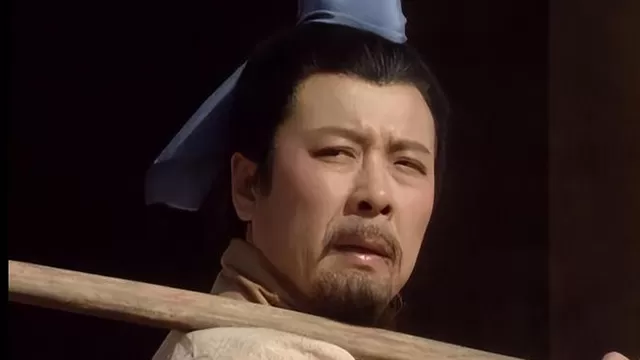
| full name | Liu Bei |
| alias | Emperor Zhaolie of Han, former ruler of Shu Han, Liu Xuande |
| character | Xuande |
| posthumous title | Emperor Zhaolie |
| title | Yicheng Tinghou, Han Zhongwang (before becoming emperor) |
| Temple Name | an illustrious ancestor |
| era name | Zhang Wu |
| The era in which it is located | Late Han Dynasty and Three Kingdoms |
| Ethnic groups | the Han nationality |
| birthplace | Zhuo County, Zhuo Commandery (located in present-day Zhuozhou City, Hebei Province) |
| Date of Birth: | 161 years |
| date of death | June 10th, 223 |
| The place of death | Yong'an Palace (located in present-day Fengjie County, Chongqing) |
| mausoleum | Huiling |
| Burial site | Wuhou District, Chengdu City, Sichuan Province |
| Presence time | May 15, 221 to June 10, 223 |
| ex | Emperor Xiaomin of Han, Liu Xie |
| succession | Emperor Xiaohuai of Han, Liu Shan |
| Main achievements | Establishing Shu Han |
Liu Bei (161 – June 10, 223), courtesy name Xuande, was born in Zhuo County, Zhuo Commandery (present-day Dashulou Sang Village, Zhuozhou City, Hebei Province). A descendant of Liu Sheng, Prince Jing of Zhongshan from the Western Han Dynasty, he became the founding emperor of Shu Han during the Three Kingdoms period, reigning from May 15, 221, to June 10, 223. He is widely recognized as a politician and is often referred to by historians as the "First Sovereign" (先主, Xianzhu).
In his youth, Liu Bei studied under the scholar Lu Zhi and later participated in suppressing the Yellow Turban Rebellion. Due to limited resources, he faced repeated failures during the warlord conflicts of the late Eastern Han Dynasty, relying on alliances with regional lords such as Gongsun Zan, Tao Qian, Cao Cao, Yuan Shao, and Liu Biao. However, his adherence to virtuous governance and moral integrity earned him widespread respect among scholars and elites. Notably, Tao Qian and Liu Biao chose to cede their territories (Xu Province and Jing Province, respectively) to Liu Bei rather than passing them to their own sons.
Through perseverance, Liu Bei seized Jing Province and Yi Province after the Battle of Red Cliffs, establishing the Shu Han regime. However, following the death of Guan Yu at the hands of Eastern Wu, Liu Bei ignored his advisors' counsel and launched a retaliatory war against Wu. Defeated at the Battle of Xiaoting (Yiling), he fell ill and died in 223 at the age of 63 in Baidi City. Posthumously honored as Emperor Zhaolie (昭烈皇帝), he was buried in Huiling Mausoleum. Although Shu Han did not grant him a temple name, Liu Yuan, emperor of the Han-Zhao state, later honored him with the temple name Liezu (烈祖).
Renowned for his resilience, magnanimity, and perceptiveness in recognizing talent, Liu Bei's decision to entrust his kingdom to Zhuge Liang on his deathbed was praised by historian Chen Shou as "a model of trust through the ages." His legacy has been celebrated in numerous literary and cultural works. A temple, the Han Zhaolie Temple, stands in Chengdu in his honor.
Liu Bei was a descendant of Liu Sheng, Prince Jing of Zhongshan, who was the son of Emperor Jing of Han (according to the Dianlue, Liu Bei originally belonged to a collateral branch of the Marquis of Linyi during the Eastern Han). His grandfather, Liu Xiong, was nominated as a "filial and incorrupt" candidate (孝廉) and rose to become the Magistrate of Fan County in Dong Commandery. Liu Bei's father, Liu Hong, died early, leaving him and his mother in poverty, forced to make a living by weaving mats and selling sandals.
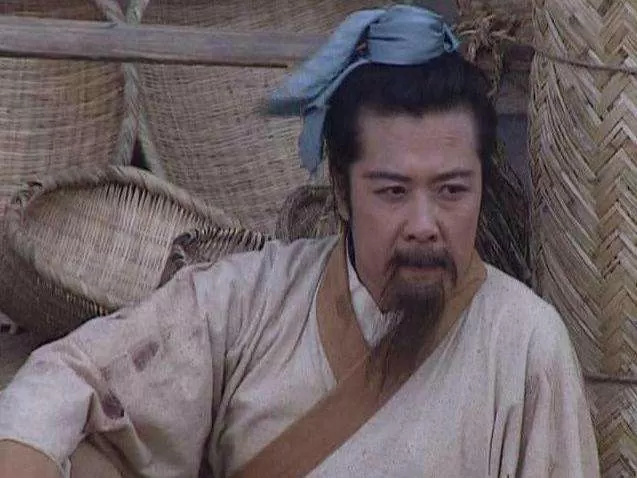
A notable mulberry tree, over five zhang (approximately 17 meters) tall, grew near the southeastern corner of their home. Its lush canopy resembled a chariot’s ceremonial canopy (车盖), leading passersby to remark that the tree was extraordinary and that the household would produce someone of great stature. As a child, Liu Bei played under the tree with other clan children and boldly declared, “One day, I will ride in a canopied carriage adorned with feathers!” His uncle, Liu Zijing, rebuked him, warning, “Do not speak recklessly—such words could doom our family!”
In the fourth year of the Xiping era (175 CE), at age 15, Liu Bei left home to study under Lu Zhi, a former Governor of Jiujiang and fellow native of Zhuo Commandery. He traveled with his clansman Liu Deran and Gongsun Zan, a man from Liaoxi. Liu Deran’s father, Liu Yuanqi, generously supported Liu Bei, treating him as his own son. This angered Liu Yuanqi’s wife, but he insisted, “This child is no ordinary member of our clan.” Gongsun Zan, older than Liu Bei, became his close friend and sworn elder brother.
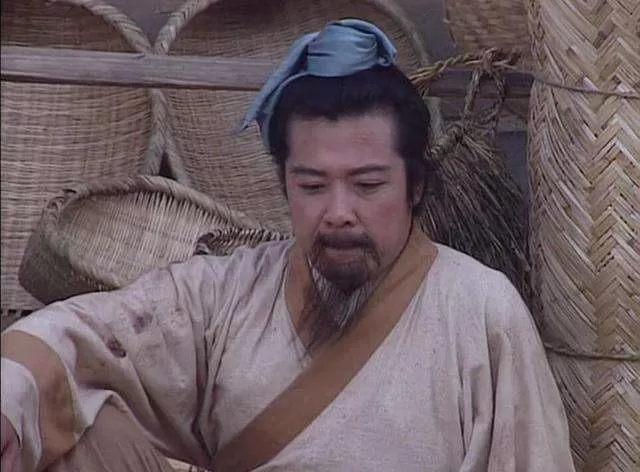
Liu Bei showed little interest in scholarly pursuits, preferring hunting dogs, horses, music, and fine clothing. He stood seven chi five cun tall (approximately 1.81 meters), with arms long enough to reach his knees and ears visible from the front. Reserved in speech, he was known for treating his subordinates kindly, concealing his emotions, and befriending local heroes, many of whom flocked to him. Wealthy merchants Zhang Shiping and Su Shuang, who traded horses in Zhuo Commandery, recognized his potential and provided financial support, enabling Liu Bei to gather a sizable following.
In 184 CE (Zhongping 1st Year), the Yellow Turban Rebellion erupted. At age 24, Liu Bei distinguished himself in suppressing the revolt. Later, in 188 CE (Zhongping 5th Year), he participated in quelling Zhang Chun’s rebellion, earning him the post of County Magistrate of Anxi (安喜县县尉) for his military contributions. However, when the imperial court ordered a purge of officials who had risen through military merit, a provincial inspector (督邮) sought to dismiss Liu Bei. Upon learning this, Liu Bei confronted the inspector at his lodgings. When the inspector feigned illness to avoid him, Liu Bei, enraged, had him bound, whipped 200 times, and fled with Guan Yu and Zhang Fei, abandoning his post.
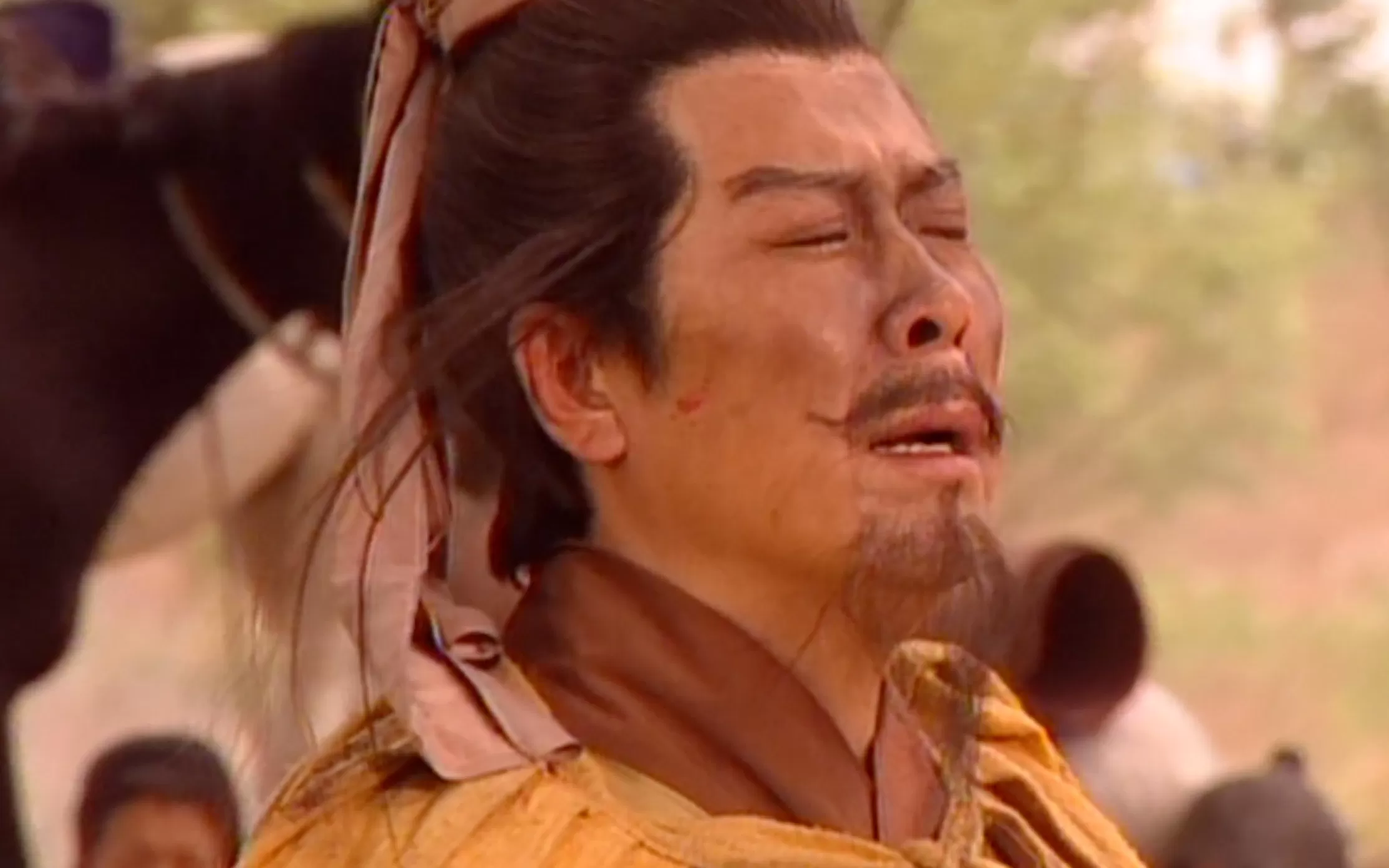
Later, He Jin, the Grand General, sent Wuqiu Yi to recruit troops in Danyang. Liu Bei joined the campaign and fought bandits at Xiapi, earning him the position of Deputy Magistrate of Xiami County (下密县丞). He soon resigned but later served as Magistrate of Gaotang County (高唐令). After Gaotang fell to bandits, Liu Bei sought refuge with Gongsun Zan. According to the Yingxiong Ji (Records of Heroes), Liu Bei also "raised an army to join the campaign against Dong Zhuo" during the chaos of Dong Zhuo’s tyranny.
In October 191 (Chuping 2nd Year), Gongsun Zan appointed Liu Bei as Separate Department Sima (别部司马). Collaborating with Tian Kai, Inspector of Qing Province, Liu Bei resisted Yuan Shao, Governor of Ji Province. Through repeated successes, he was promoted to Acting Magistrate of Pingyuan County (试守平原县令) and later became Chancellor of Pingyuan State (平原国相). As a leader, Liu Bei defended against external threats while practicing generosity internally. He treated commoners and elites alike, sharing meals and seats without discrimination. His virtuous governance won deep loyalty, even thwarting an assassination attempt: a local named Liu Ping, resentful of his rule, sent a killer, but Liu Bei’s kindness moved the assassin to abandon the plot and confess.
In 192 CE (Chuping 3rd Year), Gongsun Zan ordered Liu Bei to garrison Gaotang and Shan Jing to hold Pingyuan, pressuring Yuan Shao to support Yuan Shu. However, Yuan Shao allied with Cao Cao and defeated their forces.
In the third year of the Zhangwu era (223 CE), during the second month, Chancellor Zhuge Liang traveled from Chengdu to Yong'an. By the third month, Liu Bei, gravely ill, entrusted his heir and kingdom to Zhuge Liang and Li Yan, the Minister of Works (尚书令). To Zhuge Liang, he declared: "Your talent surpasses Cao Pi's tenfold. You will surely stabilize the realm and fulfill our grand mission. If my heir is capable, assist him. If he proves inept, you may take the throne yourself." Zhuge Liang tearfully accepted this charge. Liu Bei also instructed his son and successor, Liu Shan, to serve Zhuge Liang as a father and admonished him: "Do no evil, however small; neglect no good, however minor."
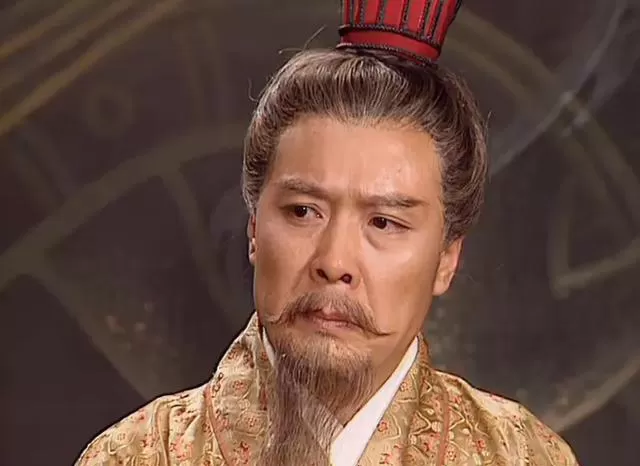
On June 10, 223 (the 24th day of the fourth lunar month), Liu Bei passed away in the Yong'an Palace at the age of 63. He was posthumously honored as Emperor Zhaolie (昭烈皇帝, "Luminous and Exemplary Emperor") and buried in the Huiling Mausoleum (惠陵).
Over eight decades later, in 304 CE (Yongxing 1st Year), Liu Yuan, founder of the Han-Zhao state, posthumously granted Liu Bei the temple name Liezu (烈祖, "Ardent Ancestor"), formally enshrining him as a dynastic founder in the Han tradition.
Liu Bei’s courtesy name, Xuande (玄德, "Mysterious Virtue"), carries profound symbolism rooted in classical Chinese philosophy and textual traditions. Scholars have long debated its etymology, with two key interpretations emerging from historical texts:
Qing Gui’s Interpretation (《札朴·蜀先主名字》):
The character 备 (bèi) signifies "completeness" or "preparedness." Gui Fu, a Qing scholar, linked this to the concept of "five colors" (青、黄、赤、白、黑—cyan, yellow, red, white, black) in the Kaogong Ji (《考工记》, Artificers' Record), which states: "When the five colors are fully present, it is called embroidery (绣)." Gui argued that black (玄, xuán) represents the culmination of the five colors, as it absorbs and completes all others. Thus, "Bei" (备) implies the "fullness" achieved through black, justifying Liu Bei’s courtesy name Xuande (玄德)—literally "Black Virtue" or "Complete Virtue."
Support from the Records of the Three Kingdoms (《三国志·蜀志·杜琼传》):
The text explicitly notes: "The name ‘Bei’ (备) signifies ‘completeness’ (具). The five colors are only ‘complete’ when black is included." This reinforces the idea that "玄德" symbolizes moral and cosmic wholeness.
The term 玄德 also appears in the Classic of Documents (《尚书·舜典》), where it describes Emperor Shun’s "hidden virtue" (玄德升闻), meaning a ruler’s unassuming yet deeply ethical governance. This aligns with Liu Bei’s historical image as a leader who prioritized benevolence and moral integrity.
Liu Bei’s name and courtesy name together reflect:
"Bei" (备): Completeness, preparedness, and the harmony of cosmic elements (via the five colors).
"Xuande" (玄德): A ruler’s profound, unspoken virtue, rooted in Daoist and Confucian ideals of humility and ethical governance.
This duality encapsulates Liu Bei’s historical legacy: a leader who balanced pragmatic ambition ("completeness") with a reputation for compassion and moral authority ("profound virtue").
Family of Liu Bei
Grandfather: Liu Xiong (刘雄) – Nominated as a "Filial and Incorrupt" candidate (孝廉), served as Magistrate of Fan County in Dong Commandery.
Father: Liu Hong (刘弘) – A minor official during the late Eastern Han; died early.
Uncles:
Liu Zijing (刘子敬) – Admonished Liu Bei for his childhood ambition to ride a royal carriage.
Liu Yuanqi (刘元起) – Financially supported Liu Bei, treating him as his own son despite his wife’s objections.
Unnamed Wife: Captured by Lü Bu during the attack on Xiapi (下邳) in 196 CE but later returned after negotiations.
Empress Wu (穆皇后): Sister of Wu Yi (吴懿). Married Liu Bei after he seized Yi Province (益州), becoming Queen of Hanzhong and later Empress. No recorded children. Died in 245 CE and buried with Liu Bei in Huiling Mausoleum.
Lady Gan (甘夫人): Concubine taken while Liu Bei was stationed in Xiaopei (小沛). Mother of Liu Shan (刘禅). Posthumously honored as Empress Zhaolie (昭烈皇后) and buried with Liu Bei.
Lady Mi (麋夫人): Sister of Mi Zhu (麋竺), married to Liu Bei in Haixi (海西). No recorded offspring.
Lady Sun (孙夫人): Sister of Sun Quan, married to Liu Bei after the Battle of Red Cliffs (赤壁之战). Returned to Eastern Wu when Liu Bei invaded Yi Province.
Note: Liu Bei lost multiple wives before 194 CE, and details of his later harem remain unclear.
Liu Feng (刘封): Adopted son (originally surnamed Kou 寇). Executed by Liu Bei in 220 CE for failing to aid Guan Yu during his defeat.
Liu Shan (刘禅): Son of Lady Gan; later Emperor Houzhu (后主) of Shu Han. Surrendered to Wei in 263 CE, titled Duke of Anle (安乐公).
Liu Yong (刘永): Illegitimate son. Enfeoffed as Prince of Ganling (甘陵王). Feuded with Liu Shan’s favorite eunuch Huang Hao (黄皓) and was sidelined. Died in Luoyang after Shu’s fall.
Liu Li (刘理): Illegitimate son (half-brother of Liu Yong). Enfeoffed as Prince of Anping (安平王). Died in 244 CE.
Two Daughters: Captured by Cao Chun (曹纯) at the Battle of Changban (长坂) in 208 CE.
Note: Liu Shan, Liu Yong, and Liu Li’s birth order is unclear. Liu Bei had at least one son by 196 CE, but his identity is lost to history.
From Liu Feng:
Liu Lin (刘林): Son; served as a junior officer. Relocated to Hedong (河东) after Shu’s fall.
From Liu Shan:
Liu Xuan (刘璿): Eldest son, Crown Prince. Killed during Zhong Hui’s rebellion in 264 CE.
Liu Yao (刘瑶), Liu Zong (刘琮), Liu Zan (刘瓒), Liu Chen (刘谌), Liu Xun (刘恂), Liu Qu (刘璩): All surrendered to Wei. Most died in the Yongjia Disturbances (永嘉之乱, 311 CE).
Liu Chen (刘谌): Prince of Beidi (北地王). Opposed surrender to Wei, committed suicide after Shu’s collapse.
From Liu Li:
Liu Yin (刘胤): Eldest son, Prince of Anping. Died in 256 CE.
Liu Ji (刘辑): Relocated to Luoyang, granted a marquis title.
Liu Cheng (刘承): Son of Liu Yin; died in 257 CE.
Liu Xuan (刘玄): Descendant of Liu Yong. Survived the Yongjia Disturbances but vanished after the fall of Cheng Han (成汉) in 347 CE.
Liu Bei, the founding emperor of Shu Han, drew polarized yet profound assessments from contemporaries and later historians. His blend of charisma, resilience, and moral ambition shaped his legacy as both a revered leader and a pragmatic warlord. Below is a synthesis of key historical and literary judgments:
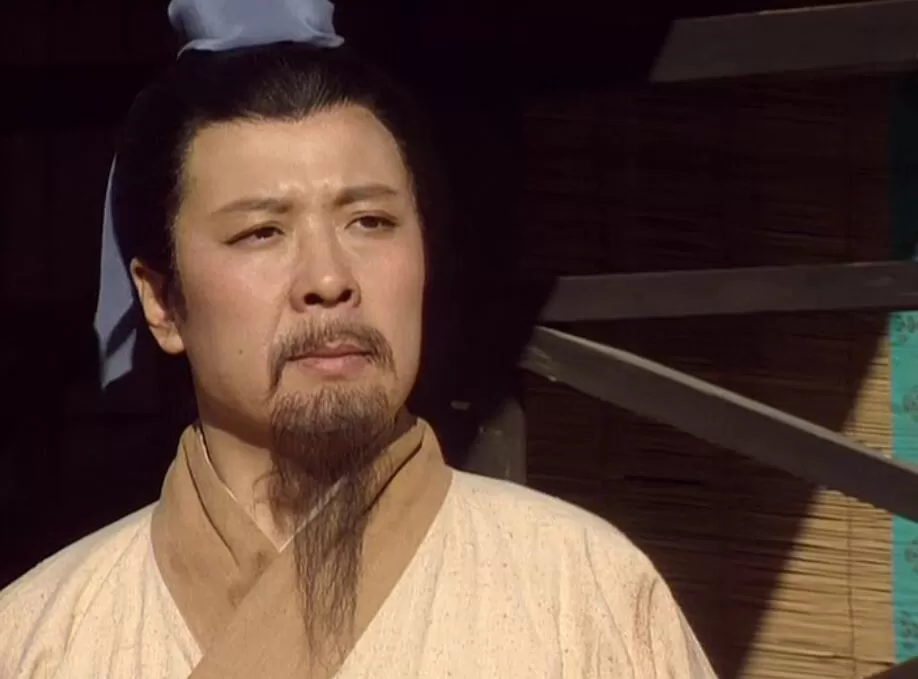
Liu Yuanqi (刘元起):
“There is no ordinary person in our clan like this child.”
— Highlighted Liu Bei’s exceptional potential early in life.
Chen Deng (陈登):
“His heroic bearing surpasses all; he possesses the strategy of a king. I revere Liu Xuande.”
— Praised his leadership and vision during Liu Bei’s governorship of Xu Province.
Taishi Ci (太史慈):
“Your reputation for benevolence and righteousness is why I risked my life to seek your aid.”
— Emphasized Liu Bei’s moral appeal, which drew loyal followers.
Cao Cao (曹操):
“In this world, only you [Liu Bei] and I are true heroes. Men like Yuan Shao are unworthy of mention.”
— Cao Cao’s famed acknowledgment of Liu Bei as his only rival during the “Green Plum Wine” episode (煮酒论英雄).
Zhuge Liang (诸葛亮):
“The First Sovereign’s majestic talent overshadows his age. Wherever he governs, virtue follows.”
— Affirmed Liu Bei’s unifying charisma and alignment with “Mandate of Heaven” principles.
Yuan Shu (袁术):
“In all my years, I’ve never heard of Liu Bei.”
— Mocked Liu Bei’s lowly status early in his career.
Lü Bu (吕布):
“This man is the most untrustworthy under heaven.”
— Criticized Liu Bei’s shifting alliances (e.g., betraying Lü Bu after seeking refuge).
Cheng Yu (程昱):
“Liu Bei has grand ambitions and wins hearts. He will never submit—better to eliminate him early.”
— Warned Cao Cao of Liu Bei’s latent threat.
Cao Pi (曹丕):
*“Liu Bei knows nothing of warfare—how could a 700-li camp hold against an enemy?”*
— Dismissed Liu Bei’s tactical acumen after the Battle of Xiaoting (夷陵之战).
Sima Yi (司马懿):
“Liu Bei seized Liu Zhang’s land through deceit. Now, with Shu’s people unswayed, he fights distant battles.”
— Condemned his opportunistic takeover of Yi Province.
Chen Shou (陈寿, Records of the Three Kingdoms):
“Broad-minded and resilient, Liu Bei excelled at winning loyalty but lacked the craft to unify the realm.”
— Balanced praise for his virtues but noted strategic limitations.
Su Shi (苏轼, Song Dynasty poet):
“Though his attack on Liu Zhang lacked righteousness, the people weep for his defeats and cheer Cao Cao’s. His legacy as a ‘noble man’ endures.”
— Captured Liu Bei’s enduring folkloric appeal as a Confucian hero.
Pei Songzhi (裴松之, historian):
“Had he ruled the Central Plains, he’d sow chaos. But guarding a corner, he became a lord.”
— Questioned his capacity for broad governance but acknowledged regional mastery.
Luo Guanzhong (罗贯中, Romance of the Three Kingdoms):
— Romanticized Liu Bei as the epitome of benevolence, contrasting Cao Cao’s ruthlessness.
Provides The Most Comprehensive English Versions Of Chinese Classical Novels And Classic Books Online Reading.
Copyright © 2025 Chinese-Novels.com All Rights Reserved
